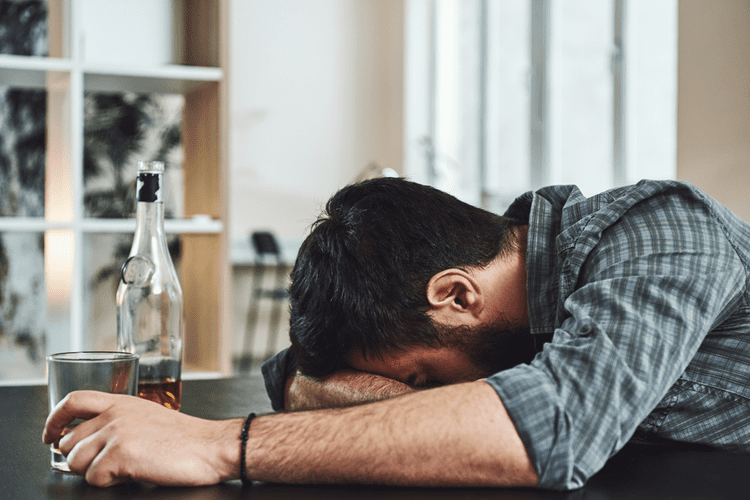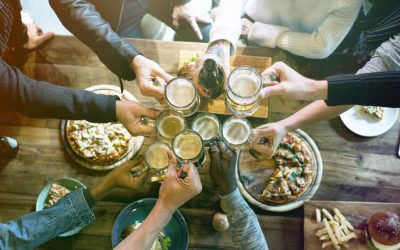Maintaining a healthy diet that includes complex carbohydrates and protein can also help stabilize blood sugar levels. Nutrient deficiencies may play a role in why people with alcohol use disorders crave sugar. Chronic alcohol abuse can deplete the body of essential vitamins and minerals, such as thiamine, magnesium, and zinc. These nutrient deficiencies can cause a range of symptoms, including fatigue, muscle weakness, and sugar cravings.

Alcoholics also experience sugar cravings as well, and the reasons behind this are multifaceted. Sugar and other replacement rewards are not enough to break the destructive cycle of a substance use disorder. If you wish to quit substance misuse, please consider professional addiction treatment services to receive a full range of interventions https://ecosoberhouse.com/ that can help ensure a successful recovery. People with severe alcohol use disorders can consume more than 50% of their calorie intake through alcohol alone¹, leaving them at significant risk for nutrient deficiency. Because your liver spends so much time processing the alcohol, other nutrient absorption is delayed.
Stimulants Increase Sugar Cravings
The year 2020 was one of the most challenging in modern history, one that took a toll on our mental and physical health. Don’t forget, you can ask questions anytime, and we’ll do our best to find the right expert to point you in the right direction. Alcoholism is a chronic do alcoholics crave sugar disease that affects millions of people worldwide. It’s characterized by an inability to control drinking habits, despite negative consequences, and wanting to quit despite being unable to. This disease can impact anyone, regardless of age, gender or social status.

To avoid bowel-related side effects, it is important to stay hydrated when drinking alcohol. If you experience any concerning bowel-related symptoms after alcohol use, please speak with a medical professional. Socially, a person with and alcohol addiction will likely be very inconsistent. Unpredictable social interactions are a strong indicator of substance use disorders.
Psychological Effects
As withdrawal symptoms from alcohol abstinence come into effect, the brain seeks euphoria elsewhere. In some ways, this may seem like a coping mechanism, but in many regards, it can simply be an addiction transfer. However, there are strategies that can help alcoholics manage their sugar cravings such as eating balanced meals, staying hydrated, or engaging in regular exercise. Additionally, seeking support from loved ones or professionals is crucial in overcoming addiction and living a healthy life. But in the short term, giving up this sweet ingredient often results in uncomfortable sugar withdrawal symptoms like cravings and fatigue. For example, a person with social anxiety may begin drinking alcohol as a negative coping skill to reduce symptoms.
It can weaken the immune system, damage the surface cells of the lungs and harm the cilia that help to remove foreign particles from the lungs. This can lead to a syndrome called alcoholic lung, which can start to develop in as little as six weeks. Alcohol vapor can also irritate the upper and lower airways, causing inflammation and harm to the cells.
What Are the Effects of Consuming Too Much Sugar for an Alcoholic?
This is particularly important for people with diabetes to recognize. If you like the taste of beer but prefer non-alcoholic versions, there are some that are relatively low-carb and low-calorie. However, the number can vary from one brand to another, so check the label. Beers with higher alcohol percentage have more calories and carbohydrates than less alcoholic beers. Of all the alcoholic beverages, liqueurs have the most carbs—and always contain sugar. If you want to have a liqueur on its own, be mindful of portion size.
It can cause devastating physical, mental, and emotional consequences. Unfortunately, recovering alcoholics must also grapple with the intense cravings for sugar that often accompany the process of recovering from an alcohol addiction. While sugar cravings are common among individuals with alcohol use disorders, consuming excessive amounts of sugar can have negative effects on the body and worsen alcoholism. Those struggling with alcohol dependence tend to crave sugar because both have a similar effect on the brain.
Why Do I Always Crave Sweets When I Give Up Alcohol? MDs Explain
Cravings are just another side effect of the battle with addictive substances like alcohol. Fighting those cravings effectively is one of the main benefits of a long-term treatment plan. With Steps to Recovery, you’re one call away from professional treatment plans that help individuals struggling with alcohol fight the challenges that come every step of the way. If you or someone you know needs rehabilitation for alcoholism, a treatment facility like Steps to Recovery should be the first place you call. Many people believe that the body craving sugar after addiction is simply a natural response to the sugar content in alcohol, but there’s more to the story.
- Too much sugar negatively impacts your overall health and prevents your body from recovering.
- Because your liver spends so much time processing the alcohol, other nutrient absorption is delayed.
- One reason cravings happen is because of an imbalance in your body chemistry.
- Sugary foods can trigger the release of dopamine, a neurotransmitter that plays a role in pleasure and reward.
- Could it be true that sweets can actually curb the craving for alcohol?







